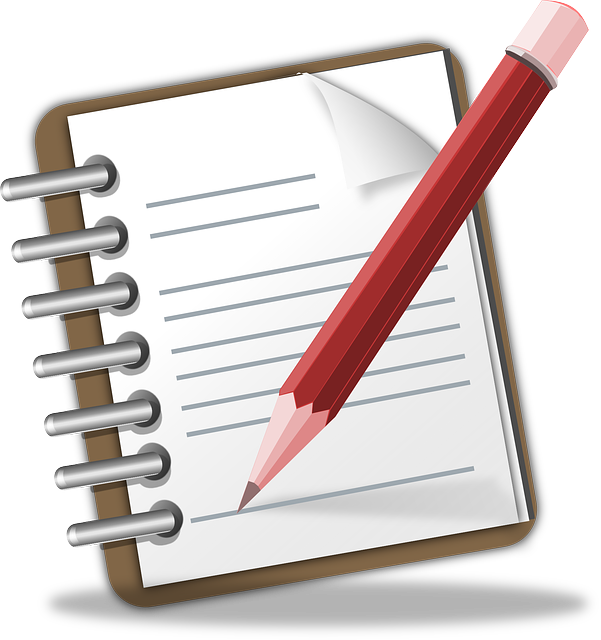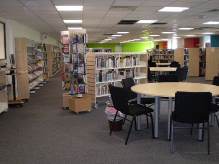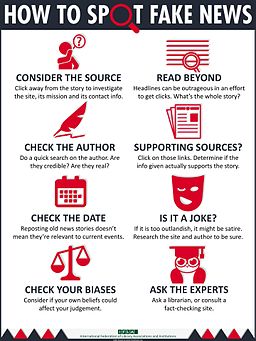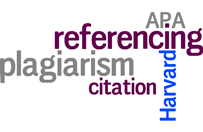Research Skills for Successful Assignments
| Site: | CCG Online |
| Course: | Library - Information and Study Skills |
| Book: | Research Skills for Successful Assignments |
| Printed by: | Guest user |
| Date: | Monday, 15 September 2025, 4:48 AM |
Research Skills for Successful Assignments
What is a successful assignment?

Assignments are set to test your understanding of a topic.
The process of researching and writing an assignment helps you to develop and reinforce this understanding.
You will get higher marks if you
- meet the criteria that have been set
- produce a piece of work that shows that you have understood and answered the question
- support your arguments with relevant evidence taken from reliable and fully referenced sources of information.
You will need to be well organized but there are tried and tested steps you can follow to get your assignment completed effectively.
- Make sure you understand what you need to do to answer the question
- Research the topic
- Organise and structure your ideas
- Start writing your first draft
- Write your final draft
These 5 steps are from a useful guide to essay writing from the University of Southampton.
The most important thing for success in any assessment is to ensure that you fully understand what you have to do so that you meet the criteria and answer the question.
Keep going back to these to make sure you are keeping on track.
Planning to meet your deadline
Here is a useful planning tool to make sure you complete your assignment on time
Understanding the question
Before you start to do any significant research or plan in any detail spend a few minutes making sure you understand the question. This will save you time.
Find out more about this in the next section. Click on the right arrow below.
Understanding the question
You need to have a clear idea in your own mind about exactly what you need to include in your answer.
Be like a detective or reporter and ask the questions
What? When? Where? Who? Why? How? 
Other useful approaches to this are to
- try rewriting the question in your own words
- creating 'mini answer' to the question
- making an outline plan to help you identify any gaps in your knowledge
Make an outline plan
Break the task into topics. Use a list or mind map to help you.


- Use as an initial planning tool when deciding on your assignment brief
- Use as a brainstorming exercise to identify keywords for research
- Use to group terms to help organise your assignment
Finding information
To find relevant information you will need to search the internet, library catalogues and databases.
Identifying the directive words and keywords in the question will help you to structure your research.
Find out more about this in the next section. Click on the right arrow below.
Directive words
Directive words
Identifying the directive words and keywords in the question will help you to structure your research.
Directive words
These are the words that give instructions about the way the task should be done.
Following these instructions will ensure that you approach the task in the right way. It will help you to decide upon the type of information you need to include and how to present this in your submission.
Here are some examples of directive words and their meaning:
|
Analyse |
Describe the main ideas in depth, showing why they are important and how they are connected. |
|
Assess |
Discuss the strong and weak points of the subject. Make your own conclusion. |
|
Compare and Contrast |
Write about the similarities and differences in the subject matter. |
|
Define |
Give clear concise meanings. State limitations of the definition. (How it is used in your essay.) |
|
Describe |
Give the main features or characteristics of something or write about the main events or stages in a process. |
|
Discuss |
Write about the subject in detail, giving points for and against, advantages and disadvantages. Give a balanced conclusion. |
|
Evaluate |
Give your opinion of the importance, usefulness, accuracy, etc. of the information. Include good and bad points, backed up with theories and references. |
|
Explain |
State clearly how and why you think something happens or why it is the way it is. |
|
Illustrate |
Use specific examples to make clear points. |
|
Outline |
Give the main ideas, but do not go into too much detail. |
(This list is taken from: Planning and writing your essay: an overview. (n.d.) Retrieved from University of Southampton website: http://www.southampton.ac.uk/assets/imported/transforms/content-block/UsefulDownloads_Download/21554E4380334CDC9DC5066351336B90/essay%20writing%20ss.pdf)
![]() Try this Directive Words Quiz to test your understanding.
Try this Directive Words Quiz to test your understanding.
Keywords
Before you start searching for information you need to decide on your search terms or keywords. Find out about this in the next section. Use the arrow on the right.
Keywords

When you are researching a topic you will need to look for information in print and online resources.
To do this you will need to identify the keywords to use in your research.
Go through the assignment title and highlight the words that identify exactly what information you need to find.
Choosing keywords
Keywords are usually single words or short phrases.
- Try to think of synonyms (other words that mean the same thing) or similar terms
- Think around the subject to find broader and narrower search terms - ones that are more or less specific.
- Think about the context - words can mean different things in different contexts.
- Remember to consider variations in spelling
| synonyms |
diet, nutrition gardening, horticulture |
| broader or narrower terms |
athletics, throwing, discus cookery, baking, patisserie |
| variations in spelling |
colour, color ageing, aging |
| plurals |
stadium, stadia tooth, teeth |
| scientific and common names |
patella, knee cap flora, flowers |
| terminology peculiar to a country |
football (UK), soccer (US) |
| acronyms |
NHS, National Health Service |
It also helps to keep the following questions in mind:
What? – Which subjects does this project cover?
When? – Which period of time does this project cover?
Where? – Which geographical area does this project cover?
Who? – Which people does this project cover?
Example:
Given the clear benefits of healthy eating, analyse why people today don’t eat more healthily.
| Directive words: | analyse why | give detailed reasons, separated into different parts, e.g. peer pressure, convenience, advertising |
| Keywords: | "healthy eating" | similar terms – diet, nutrition |
| benefits | to “analyse” you will also need to include the drawbacks of unhealthy eating | |
| Limits: | today | the answer has to be current but also implies that comparison with the past is appropriate (e.g. compare the number of fast food outlets in the past) |
| more | this suggests you could include some statistics about dietary trends to support your argument |
Sources of information
Find out about different sources of information and how to use them, click on the link on the right
Sources of information

Types of resources
| Resource type | What are they good for? | What else do I need to know? | Where can I find them? |
| Books and eBooks |
Good for theoretical and background information Present information systematically Authoritative |
Books take a long time to publish so may be less up to date Use the index and contents pages to find information in books eBooks are available off-campus You can search inside eBooks using the search box eBooks can usually be downloaded to read on your own device |
You can borrow books from the college library Use the library catalogue to search for books in the library Here is a guide to finding and using books from the college library eBooks are available in the Online Resources section of the library course in CCGOnline |
| Academic Journals |
Current research Highly focussed content Most articles written by academics or specialists in the field of study
|
Peer-reviewed (checked by subject experts) Scholarly articles, written in a formal style that assumes readers already have some knowledge about the subject Most journal articles charge for access unless your college or university has a subscription
|
The college subscribes to some excellent journal databases. You can find these in the Online Resources section of the library course in CCGOnline You can find other articles by searching online but most will ask for payment to access the full-text, but there is an increasing number of open source articles that are free |
| Trade and popular magazines |
Topical Current trends and new ideas |
Relevant to specific industries or subjects Written in an informal style Attractive presentation |
You can borrow magazines from the college library Use the library catalogue to find out what is available The Resources for Your Course section on the library course in CCGOnline has a guide for each curriculum area which includes a list of the magazines available |
| Websites |
Government information Company information Statistics News Social media Images, video and audio |
Need to search effectively Need to exercise caution as anyone can publish a website (see the evaluating information section in this tutorial for advice)
Wikipedia can be a useful site to get ideas but you should always check the information in a reliable source.
Anyone can edit the articles there and you should not quote from Wikipedia in your assignments.
|
Online |
| Online resources | General and specialist resources
|
Online resources aimed at specific industries, areas of cultural interest or academic study, e.g. Childlink, Digital Theatre Plus, Statista Use limited to subscribers
|
The Resources for Your Course section on the library course in CCGOnline has a guide for each curriculum area which includes a list of the targeted online resources available |
(This information is adapted from https://anglia.libguides.com/informationskills/planningwhatinformation but also with thanks to colleagues at Crawley College.)
Primary and secondary sources
"Information can come from a variety of sources from eye witness accounts of events to textbooks, technical reports and literature reviews. Information sources can be divided into primary and secondary sources. So what are the differences?
Primary sources are original materials which provide first-hand accounts of events, original research, discoveries or ideas. They are created by people who experienced the events or conditions written about and their accounts have not been filtered through interpretation by others. Examples include news reports, diaries, letters, photographs, artwork and experiments or research data.
Secondary sources are usually analysis or interpretations of primary sources. They are produced after the fact with the benefit of hindsight. Examples include textbooks, biographies, commentaries and reviews.
Examples comparing primary and secondary sources
| Primary | Secondary |
|---|---|
| Piece of artwork | Book about an artist |
| Novel | Secondary criticism or review |
| Letters, diaries, blogs | Article analysing letters, diaries, blogs |
| Photographs | Biography of photographer |
| Report of results of experiment | Critique of experiment |
| Speech | Commentary on speech |
| Newspaper article | Analysis of newspaper articles |
| Act of Parliament | Law textbook |
| Film or performance | Film or performance review |
| Journal article reporting results of experiment | Literature review |
| Statistics | Forecast analysing statistics |
Caution!
-
Sources can sometimes be both primary and secondary e.g. newspaper articles (primary when reporting events, secondary when commenting on an event).
-
Whether something is primary or secondary often depends on your discipline e.g. journal articles reporting original research in the sciences are considered primary but usually secondary in arts, humanities and social sciences.
-
The use of a source can also define whether it is primary or secondary. For example, extracting statistics from a journal article and making your own interpretations makes it a primary source. Drawing on the analysis of the statistics by the author makes the article a secondary source." (Anglia Ruskin University)
(Reference: Anglia Ruskin University. (n.d.) What information do you need? Retrieved from https://anglia.libguides.com/informationskills/planningwhatinformation)
Your own research e.g. a survey, questionnaire or interview is also a primary source.
Citing and Referencing
Remember you will need to reference all your sources. There is more information about this later in this tutorial.
Searching online
Get some tips about searching online, click on the link on the right
Searching online

After you have identified your keywords you can use them for searching on the internet and in library databases.
If you use the advanced search facility it will help you to structure your search.
Combining search terms (Boolean searching)
The most precise method of searching is to combine terms by searching for two or more words (keywords, title words or authors).
Combine your search terms using AND, OR, NOT
Some search engines do not support Boolean searching but you can use + or – instead.
If you want to make sure that a search engine finds pages that include all the words (including common link words such as for, and etc.) you enter put a + symbol in front of the word.
If you want to exclude pages that have a specific word, put a – symbol in front of the word.
Phrase searching
Phrase searching can often lead to better results because this will find pages where the words appear together.
Use phrase searching by putting quotation marks around words you want to find together.
Truncation
This allows you to search on variations of your search terms allowing for things like plurals of words. You need to enter the stem of the word you are looking for then add a symbol (usually *) and you can then search on all the words starting with those letters. The symbol for truncation can vary but is usually * or $.
Examples:
electronic* will search for electronics or electronic
electr* will search for electrical, electronic, electrician and all other words with this stem
child* will search for children, child's, childhood etc.
Do be aware that different search engines use different methods of combining words in a search string.
Library online resources
The college library has subscriptions to a wide range of online collections of ebooks, journal databases and targeted resources to support college courses. You can apply these search techniques to these resources to find high quality information for your college work. You can easily structure your search using keywords and limiters. They all have online help sections to assist you in getting the best results for your research.
You can access these resources here
Using Google
You can also use Google Scholar. This searches the internet for academic articles. Most of these articles are in online databases that ask for payment but a significant amount are freely available.
Keeping on track
- Always keep your question in mind when you are reading and taking notes.
- Keep a record of your searches.
- Keep referring back to the question - but don't worry if it changes as you continue to research.
- Change your search terms as your research progresses - review and reassess.
- If you are doing a substantial research project don't let yourself become overwhelmed by the “big” question. Try breaking it down into smaller questions to help you handle the volume of material.
- You may be asked to reflect on your approach to the assignment.
Evaluating your resources
It is important that you find reliable high quality information for your assignments. Go to the next section to find out about this. Use the arrow on the right.
Evaluating sources of information

Before you use any information to answer your assignment it is important to evaluate it.
One way to do this is to use the CRAAP test.
You need to assess its currency, relevance, authority, accuracy and purpose (the CRAAP test)
The test is a list of questions to help you evaluate the information you find.
Different criteria will be more or less important depending on your situation or need.
Currency: The timeliness of the information.
- When was the information published or posted?
- Has the information been revised or updated?
- Does your topic require current information, or will older sources work as well?
- Are the links functional?
Relevance: The importance of the information for your needs.
- Does the information relate to your topic or answer your question?
- Who is the intended audience?
- Is the information at an appropriate level (i.e. not too elementary or advanced for your needs)?
- Have you looked at a variety of sources before determining this is the one you will use?
- Would you be comfortable citing this source in your assignment?
Authority: The source of the information.
- Who is the author / publisher / source / sponsor?
- What are the author's credentials or organisational affiliations?
- Is the author qualified to write on the topic?
- Is there contact information, such as a publisher or email address?
- Does the URL reveal anything about the author or source (examples: .ac.uk .com .edu .gov .org .net)?
Accuracy: The reliability, truthfulness and correctness of the content.
- Where does the information come from?
- Is the information supported by evidence?
- Has the information been reviewed or refereed?
- Can you verify any of the information in another source or from personal knowledge?
- Does the language or tone seem unbiased and free of emotion?
- Are there spelling, grammar or typographical errors?
Purpose: The reason the information exists.
- What is the purpose of the information? Is it to inform, teach, sell, entertain or persuade?
- Do the authors / sponsors make their intentions or purpose clear?
- Is the information fact, opinion or propaganda?
- Does the point of view appear objective and impartial?
- Are there political, ideological, cultural, religious, institutional or personal biases?
(Copied, with minor alterations, from: http://library.csuchico.edu/help/source-or-information-good )
Printed sources
Books, journals and magazines are usually put through an editing process to ensure they meet these standards.
When you are looking for information you can use the following techniques to evaluate printed resources:
- Check the contents pages, the “blurb” on cover, and the introduction to evaluate if it is relevant to your topic
- Consider whether the author and publisher are reputable, check with your lecturer if you're not sure
- Check the date to assess how up to date it is, consider whether this is important for the topic you are researching
- Academic journal articles and some books have an abstract, which summarises the content, you can use this to assess how useful it is
- Check any references to see if the authors are using reliable sources themselves
- Skim read relevant sections before you commit too much time to reading it thoroughly
- When you have decided it is useful, read actively and critically
- Try using the SQ3R technique (survey, question, read, recall, review) to consolidate your understanding
- Take meaningful notes that you can use when you come to write up your assignment
- Don't forget to take down all the information you need to reference it
Online sources
You can find ebooks and journal articles online. Use the techniques above to evaluate their reliability and relevance.
Websites need careful evaluation.
This tutorial from Cardiff University Library Service points out some of the things to consider.
Evaluating the evidence: Assessing the quality of your sources
Here are links to the Cardiff University Library Service web page evaluation checklist:
Cardiff University web site evaluation checklist - Word
Cardiff University web site evaluation checklist - PDF
"It is in the nature of an open collaboration and work-in-progress like Wikipedia that quality may vary over time, and from article to article. While some articles are of the highest quality of scholarship, others are admittedly complete rubbish. Also, since Wikipedia can be edited by almost anyone anytime, articles may be prone to errors, including vandalism. So please do not use Wikipedia to make critical decisions. This encyclopedia is especially useful for improving familiarity with a subject and its jargon, and for learning search terms with which to further explore a subject beyond Wikipedia. Helpful external links are also provided to assist you in learning more."
Ten things you may not know about Wikipedia
Spoof websites
Tree octopus

http://www.bbc.co.uk/news/education-41902914
Indiana State University - How to identify and avoid fake news
Referencing and plagiarism
Find out more about this in the next section. Use the arrow on the right.
Referencing and Plagiarism
It is important that you reference all the sources of information in your assignments. You will probably lose marks and may have your assignment referred if you don't do this.
Use the link below to go to the section in the library course in CCGOnline, where you can find out about plagiarism and how to reference your sources.
https://ccgonline.chichester.ac.uk/course/view.php?id=2456#section-7
Quiz
Try our quiz to test your understanding. Click on the link on the right.
Quiz

Now you have completed the tutorial, test your understanding with this quick quiz
https://ccgonline.chichester.ac.uk/mod/scorm/view.php?id=140341
